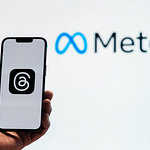In this episode, we discuss the key takeaways from the first 3 weeks of the earnings season including the softening trends in the economy, the state of the EV market, and the stabilization in cloud.
The episode is based on yesterday's newsletter which is available on Substack.
Softened Conditions
Summary: It was another heavy week of earnings calls last week and the economy seems to be continuing to soften. Visa and Mastercard didn’t see a significant change in consumer behavior but in most pockets of the economy, the commentary is muted compared to previous weeks. The consumer’s excess savings from Covid may be running low and higher rates are having a real impact on larger ticket items.
A transcript of this podcast, with relevant images and quotes, is available for all subscribers after the show notes below. Our podcast is available on Apple Podcasts, Spotify, Google Podcasts, and Amazon Music.
Show Notes
00:00:00 Introduction
00:00:20 A Real Slowing
00:01:30 A Stressed Consumer
00:03:22: Rising Geopolitical Tensions
00:06:23 Soft EV Demand
00:05:20 Stabilization in Cloud
00:08:20 Sharp Rise in Defense Spending
00:09:22 Conclusion
Introduction
[00:00:00] Scott: Welcome everyone to The Transcript podcast. You've got me, Scott Kristoloff. I'm editor of The Transcript along with Eric Mokaya, who's our lead author. We have a new episode of the podcast for you.
A Real Slowing
We haven't been around for a little while, but it's earning season. So we figured we would hop on and discuss the trends that we're seeing in earning your skulls again. Last week there were a number of companies that reported a lot of tech companies. And in the last two weeks of the earnings season, I feel like we're seeing a real slowing in the economy. Still, the only real positive data point that we saw last week was Visa and MasterCard saying that things are stable. But besides that, I feel like most companies are talking about a slowdown. Real interest rates starting to really impact actual spending in the economy. We saw that from Harley Davidson. We've seen that from banks. We're seeing that in construction and housing and things like that. But I'm getting a sense that the economy is slowing some here. Eric, what's your take?
[00:54:00] Mokaya: I think we agree on that. I remember when you met, especially last week's newsletter, the previous week, not this one. The agreement was that there's a specific, very significant kind of time that has happened from observations, especially from CEOs in earnings calls. And then one of those is, of course, the slowing down of consumer spending, the fact that high, the higher rates are starting to finally hit the consumer where it hurts the most. So consumers are cutting down on spending and channeling it towards places where they find value. And interestingly, I think the comment for me that stood out this week is that the consumer is stressed, but it's barely hanging in there. So it feels like we're at that point where maybe a little bit more high interest rates would actually push your consumers towards And even a really bad place where they can be at.
A Stressed Consumer
So I think excess savings are mostly gone. And I think that's a key point to keep in mind because the consumers have actually been spending a lot on that. And especially this is something else that I noted is that personal unsecured personal loans are actually very the demand for them is very high at this point in time. I don't know if that gives you a sense of where the consumer is very stressed and borrowing as much as they can to be able to keep up with the spending so far. I wouldn't really read much into MasterCard and Visa. They are conduits in terms of where payments get done. I don't know how much visibility they have in terms of the level of stress that the consumer has. What do you think about that, especially given maybe the last financial crisis and all?
[00:02:20] Scott: Yeah, I think that the excess savings that the consumer had built up post-COVID from all the stimulus certainly seems to be dwindling at this point and is coming close to being exhausted. And so I think the stress that we've been seeing in the consumer, especially among low-income consumers, continues to show its way, make its way through the economy.
Last week, there was a quote that we picked up that said that subprime delinquencies were verging on 2009 levels, 2008 levels, which says to me that the consumer is in really bad shape, actually worse shape than people had been expecting. Yeah, the Visa MasterCard data, I think they, they see a lot of spend, but I think the spend tends to be more with affluent consumers, which does show, does impact the overall economy, but I think they're, I think they're missing some dynamics.
Rising Geopolitical Tensions
[00:03:22] Mokaya: I think so, too. I think the certain dynamics which we may not be able to get from them may be going back to perhaps one of the risks that has actually become heightened in the past couple of weeks is the geopolitical risk. If I remember well, when I was working at Klana, I think that was back in 2000 and 22, 23 there 20, 21, 22. The consumer was doing quite well in terms of the data that you were looking at back then until the crisis in Ukraine-Russia happened and then that kind of triggered a series of events where interest rates started going up and all. And I feel like at this point in time, this is a danger political risk, which has arisen in the past couple of two weeks, is actually a trigger in the sense of heightening the level of risk and maybe caution from banks in terms of lending, in terms of, we don't know how this situation may unfold. The Ukraine crisis has been with us for almost two years now. And still no resolution to it. Now there's a crisis in the Middle East and Demi Diamond was talking about it as being a very significant event. What's your take on that, especially in terms of how it may impact consumer spending going forward?
[00:04:31] Scott: Yeah, I would say at best. I'm an armchair geopolitical analyst, but certainly, I think I like others in the world are watching the events of the Middle East with a lot of concern over like it happened and a lot of sadness over what has already happened. I think that clearly, the Middle East is an important lever on the price of oil. And if oil prices were to rise in something from an economic standpoint, it would have a really large impact on the global economy with where we're teetering right now. Similarly, just the parties in play in the Middle East certainly have me concerned as others, and that can weigh on global economic productivity just by virtue of people being concerned about what's happening geopolitically.
Stabilization in Cloud
[00:05:20] Mokaya: Yeah, I think so. And beyond that, as a big tech big tech was reporting earnings last week. And I think one of the things that stood out for me was the impact that geopolitical risk is having a bit of the ad spend. There are a couple of companies, I think, Snap and Meta, which noted that some customers have pulled back on spending slightly just to monitor how this develops. I don't know how that will be prevalent, especially going into Q4 for most of these companies, but I think that's something that is notable and worth paying attention to. And then also the fact that cloud spend is still very strong. A lot of these companies are still taking time to move some of their data needs from offline to online in terms of storage. And I think Amazon notably noted that the pace of deals is picking up. After a quiet kind of period, especially in the last two or three kind of quarters. Is there anything else you picked in terms of big tech earnings this week that would be interesting for our readers and listeners and readers to take note of?
Soft EV Demand
[00:06:23] Scott: Yeah, this wasn't necessarily in tech, but I thought there was a really important group of quotes from Ford and General Motors in this week's issue around electric vehicle demand and it seems like the demand for EVs that is being seen by at least Ford and GM is lower than their expectations, and I don't know what to make of that, whether it's just Ford and GM's product lineup that people aren't as interested in, or if broadly expectations for electric vehicles got a little bit out over overextended, but it seems like a pretty important group of quotes that there was, especially Thank If you rewind a year or two ago, in terms of the way that these companies were thinking about electric vehicle production and the amount of demand that there were, was for EVs, when you put those types of investment plans in motion, and then they don't show up. The demand doesn't show up to the extent forecasted. It can be very disruptive, not only to those companies, but supply chains that we're planning to supply those companies. And so I think that this is a very important dynamic that probably isn't fully fully appreciated by markets right now. And that can show up in a lot of different places because there are a lot of companies that are basically easy Evie plays right now in different areas that can be lithium companies. That can be power semiconductor companies. There's a lot of there was a lot of hype around EVs that may not be coming to fruition for those two big players.
[00:08:04] Mokaya: Yeah, I think one of the things that has notably come that I've noted the past couple of weeks or so around, as you say, EV companies, there's a lot of pricing pressure that is happening in the market. They're having to to reduce prices, which of course puts them under margin pressure. And I think there's a lot of, and a couple of quotes that we picked several weeks ago about the EV market, especially in China.
Sharp Rise in Defense Spending
Did you have anything else to discuss? Talk a bit about defence spending by the way, a lot of companies are having this huge backlog of just a sp in terms of demand for defence spending the past couple of weeks, given the high-tech geopolitical risks around them. I'm actually very surprised that they ramped up so fast.
[00:08:47] Scott: Yeah, I think defense contractors are a place where certainly from a financial standpoint, a trader could benefit from the geopolitical tensions that are happening around the world. It feels not entirely moral or ethical to me to make those sorts of investments, but that certainly is something that you know. Certain investors could potentially take advantage of here.
Conclusion
[00:09:16] Mokaya: Yeah, you are the same school. All right. Is that a good place to close our first episode in a long time?
[00:09:22] Scott: I think so.
[00:09:24] Mokaya: We should be back again next week, hopefully, to do this since it's peak earning season. I think this week, almost 170 S&P 500 companies are reporting. So we should have a lot of nuggets to speak, to pick up on. So see you again next week. And thank you for joining us on The Transcript podcast. Bye. Thanks, everyone. Bye.











